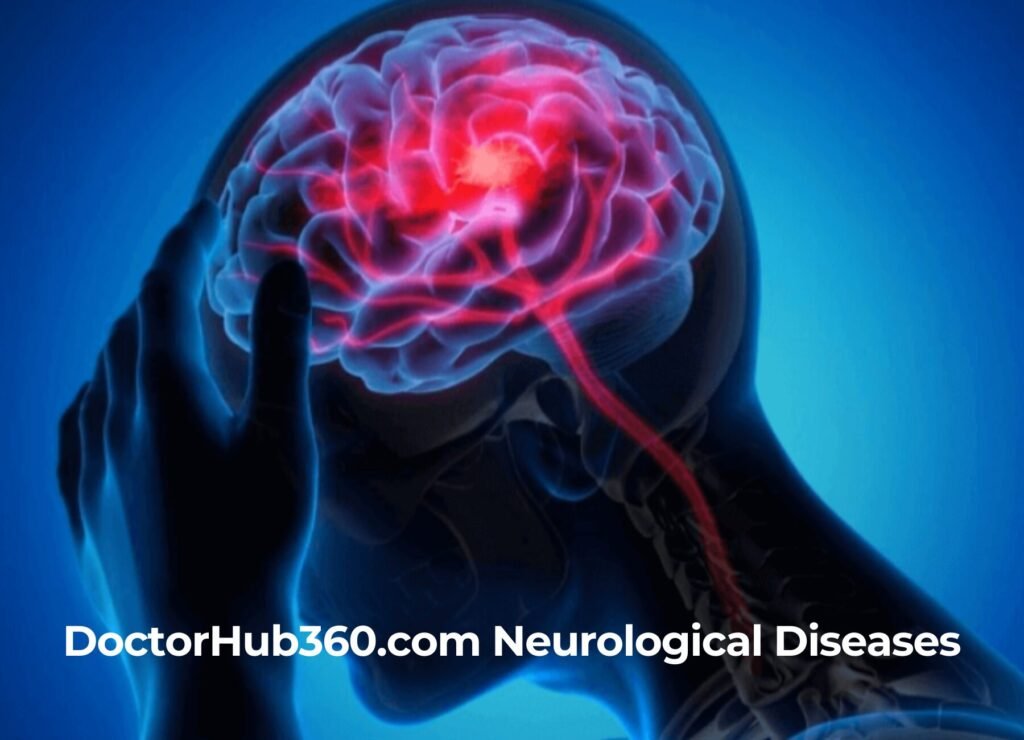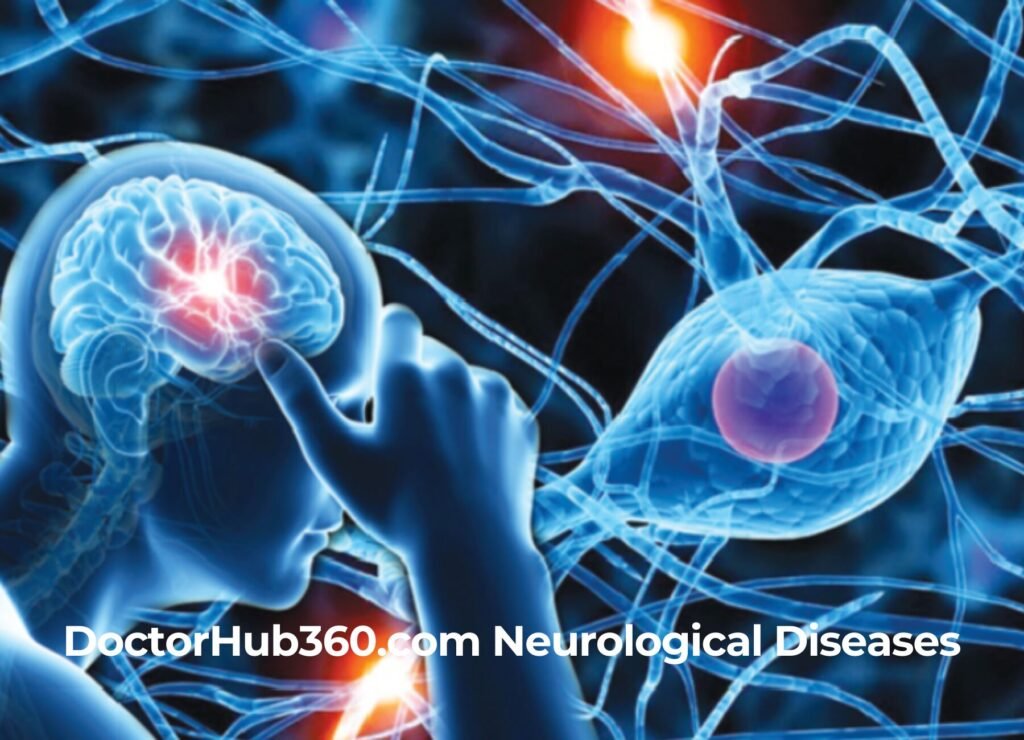Introduction: DoctorHub360 com Neurological Diseases
DoctorHub360 com Neurological Diseases affect millions worldwide, posing significant challenges to healthcare providers and patients alike. These disorders include of conditions that affect the brain, spinal cord, and nervous system. DoctorHub360 com Neurological Diseases delves into the intricacies of neurological diseases to raise awareness, provide insights, and support better management and treatment options.
What Are Neurological Diseases?
Neurological diseases are conditions that interfere with the proper functioning of the nervous system. They can result from genetic mutations, environmental factors, infections, trauma, or other underlying conditions. Common neurological diseases include:
- Alzheimer’s Disease: A degenerative neurological condition characterized by gradual memory loss and cognitive impairment.
- Parkinson’s Disease: A neurological condition marked by tremors, muscle stiffness, and problems with balance and coordination.
- Multiple Sclerosis (MS): An autoimmune condition where the immune system attacks the protective sheath of nerve fibres, leading to communication issues between the brain and the body.
- Epilepsy: A chronic condition marked by recurrent seizures caused by abnormal brain activity.
- Stroke: A medical emergency where the blood supply to part of the brain is interrupted, leading to cell death.
Symptoms of Neurological Diseases
The symptoms of neurological disorders can differ significantly based on the specific condition. Common signs to watch for include:
- Persistent headaches or migraines
- Memory loss or difficulty concentrating
- Muscle weakness or paralysis
- Loss of coordination or balance
- Seizures or tremors
- Changes in sensation (numbness, tingling)
Diagnosis and Treatment
Diagnosing neurological diseases often requires a combination of clinical evaluations, imaging studies like MRIs or CT scans, and laboratory tests. Once diagnosed, treatment plans may involve:
- Medications: To manage symptoms or slow disease progression.
- Therapies: Physical, occupational, or speech therapy to enhance functionality and quality of life.
- Surgery: In severe cases, procedures like deep brain stimulation may be considered.

Living with Neurological Diseases
Coping with a neurological condition can be emotionally and physically challenging. Patients and caregivers should prioritize:
- Regular Checkups: Ongoing medical supervision helps adjust treatments as needed.
- Support Groups: Building connections with others experiencing similar challenges offers both emotional support and practical guidance.
- Healthy Lifestyle Choices: A balanced diet, regular exercise, and stress management can positively impact overall well-being.
Advancing Research and Hope
Recent advances in neuroscience and technology offer hope for better understanding and treating DoctorHub360 com Neurological Diseases. Innovations such as brain-computer interfaces, stem cell therapy, and precision medicine are paving the way for groundbreaking solutions.
At DoctorHub360 com Neurological Diseases, we are committed to empowering individuals with knowledge and resources to navigate the complexities of neurological diseases. Visit our platform to explore more about prevention, diagnosis, and management strategies to lead a healthier and more informed life.
Their Brain-Fixing Blueprint
Optimal brain health is crucial for maintaining overall well-being and cognitive performance. Implementing a comprehensive “Brain-Fixing Blueprint” can help enhance mental performance and protect against cognitive decline. Key components of this blueprint include:.
- Balanced Nutrition: Consuming a diet rich in omega-3 fatty acids, antioxidants, and essential vitamins supports brain health. Incorporating foods like avocados and blueberries can provide anti-inflammatory benefits.
- Regular Physical Activity: Engaging in consistent exercise improves blood flow to the brain, promoting neuroplasticity and cognitive function. Strive for a minimum of 30 minutes of moderate exercise each day.
- Quality Sleep: Prioritizing 7-8 hours of uninterrupted sleep each night is crucial for memory consolidation and overall brain health. Establishing a consistent sleep routine can aid in achieving restorative rest.
- Mental Stimulation: Engaging in intellectually stimulating activities, such as puzzles, reading, or learning new skills, helps maintain cognitive sharpness and build cognitive reserves.
- Stress Management: Practicing stress-reduction techniques like meditation, deep breathing exercises, or yoga can mitigate the adverse effects of chronic stress on the brain. For example, the “physiological sigh” technique has been proven to help manage stress.
- Social Engagement: Maintaining strong social connections and participating in community activities can enhance mental health and cognitive resilience.
- Avoiding Neurotoxins: Limiting exposure to substances harmful to the brain, such as excessive alcohol and tobacco, is vital for preserving cognitive function.
By integrating these practices into daily life, individuals can create a robust framework for sustaining and enhancing brain health throughout their lives.
Also Read:”Laura Marie Holtzmann“
Conclusion: DoctorHub360 com Neurological Diseases
Neurological diseases represent a complex and diverse category of health conditions that profoundly impact individuals and their families. Early diagnosis, innovative treatments, and a comprehensive approach to care can significantly improve the quality of life for those affected. At DoctorHub360 com Neurological Diseases, we strive to bridge the gap between medical expertise and accessible information, empowering individuals to understand and manage these conditions effectively.
DoctorHub360 com Neurological Diseases: Whether through educational resources, expert insights, or community support, we are dedicated to making a difference in the lives of those navigating neurological challenges. Together, we can foster awareness, inspire hope, and promote advancements in the fight against neurological diseases.


